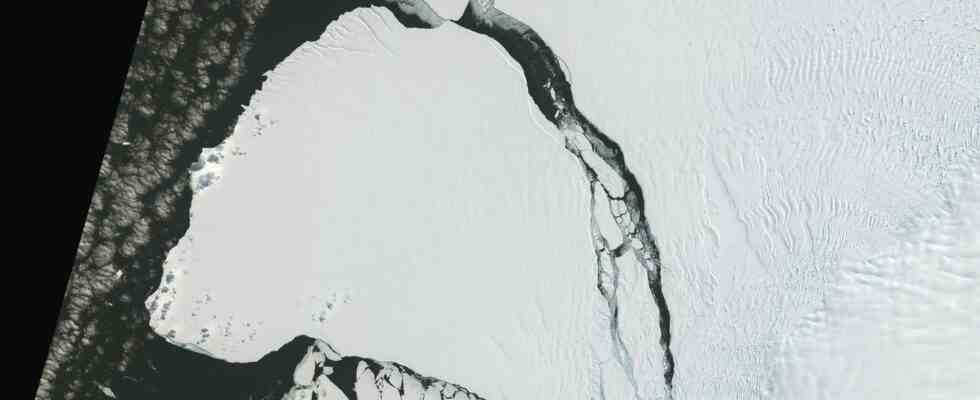As big as London
Huge iceberg broken off in Antarctica
Watch the video: Huge iceberg broken off in Antarctica.
STORY: According to the polar research organization British Antarctic Survey (BAS), a huge iceberg has broken loose in Antarctica. It should be around 1550 square kilometers in size, as the scientists announced. So the piece of ice that broke off is almost the size of the city of London, including all the outskirts. The incident happened on Sunday evening during a flood. However, the researchers emphasize that the demolition is not directly related to climate change. Rather, that this split was expected by professionals and is part of the natural behavior of the Brunt Ice Shelf.
A massive iceberg has broken loose in Antarctica. According to scientists, however, it is a natural process that they believe is not directly related to climate change.
A massive iceberg has broken off in Antarctica. The approximately 1,550 square kilometers – almost the size of the city of London and its outskirts – large block of ice broke off last Sunday during a spring tide from the so-called Brunt ice shelf in Antarctica, said the polar research organization British Antarctic Survey (BAS).
Iceberg the size of London
“We expected this splitting, it’s part of the natural behavior of the Brunt Ice Shelf. It’s not related to climate change,” BAS glaciologist Dominic Hodgson said in a statement. On the other hand, researchers linked the break-off of an approximately 1,200-square-kilometer iceberg last year with global warming, since the melting of the sea ice has accelerated significantly due to higher temperatures. The fissure in the ice sheet, which even had a name with “Chasm-1”, was discovered by researchers years ago. Over the years it increased in size until the chunk of ice broke away.
Melting idyll
In ice-cold regions: the powerful images of nature photographer Paul Nicklen
Researchers continue to monitor the floating chunk
The British Antarctic Society operates a research station on the Brunt Ice Shelf in Antarctica. As a precautionary measure, this was moved a good 20 kilometers further inland in 2016 so that it would not be endangered in the event of demolitions such as those recently observed. Glacier researchers are on site from November to March – the Antarctic summer. In the remaining months, the region will be observed using satellite images from the space organizations Esa, Nasa and the German satellite “TerraSAR-X”. The giant iceberg, which is now expected to drift along the Antarctic coastal current like its predecessor, is yet to be named by the US National Ice Center. The British glacier researchers want to continue to monitor the Brocken. The Brunt Ice Shelf is the most closely monitored ice shelf on Earth, according to the British Antarctic Survey.

